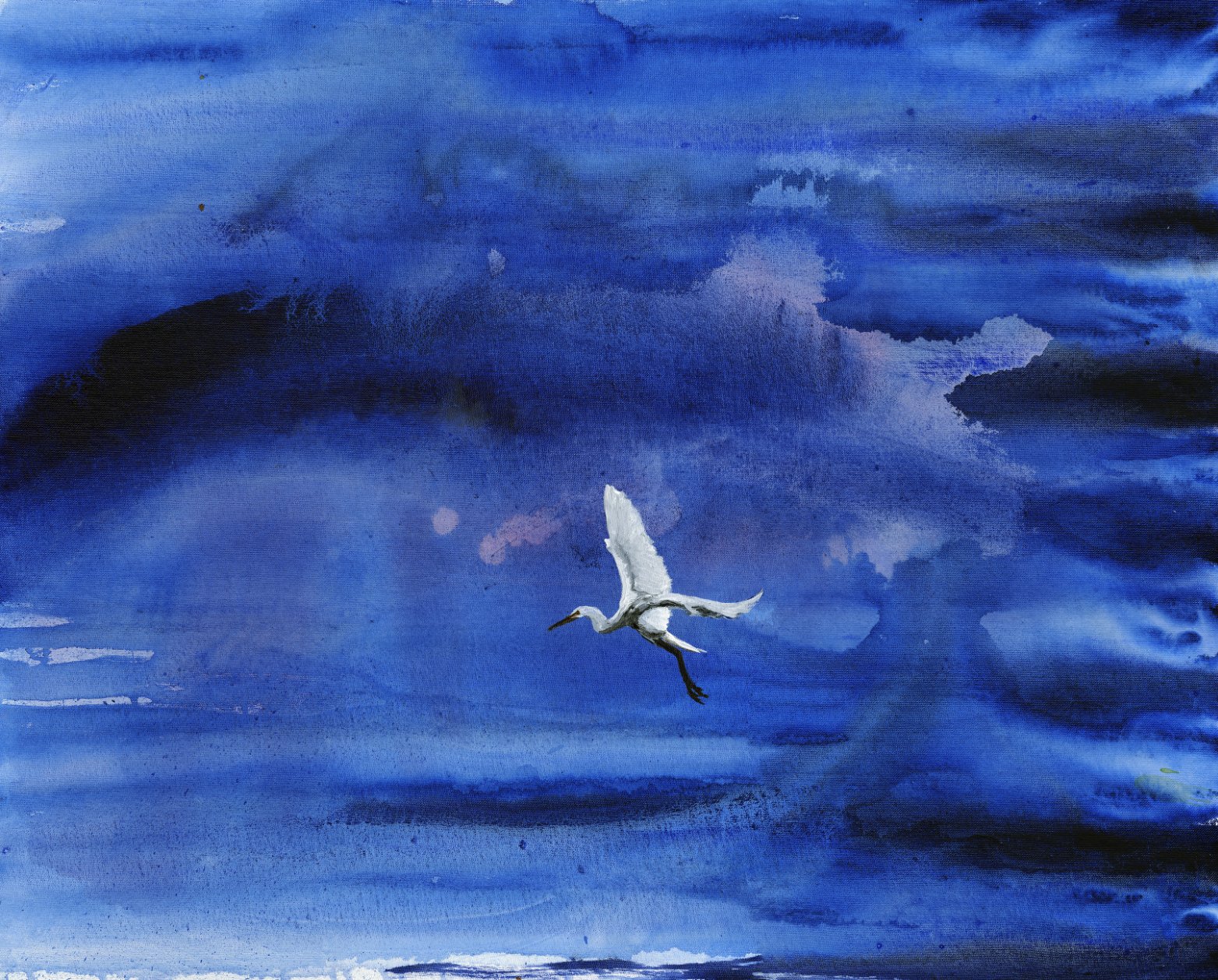
Art & words
That celebrate the beauty and mystery of creation
And the creative journey.
Too lazy to be ambitious,
I let the world take care of itself.
Ten days’ worth of rice in my bag;
a bundle of twigs by the fireplace.
Why chatter about delusion and enlightenment?
Listening to the night rain on my roof,
I sit comfortably, with both legs stretched out.
– Ryokan (1758-1831)
Ryokan was a Zen master, hermit, calligrapher, and poet. He was known for his great kindness – he would pick lice out of his robe, place them outside so that they could get some sun and then later put them back into his robe. He smiled continuously, and people said that when he visited they felt “as if spring had come on a dark winter’s day.” He took the name “Great Fool” for himself. When a thief stole his few simple possessions, he wrote this famous haiku:
The thief left it behind:
the moon
at my window.
. . .
Ryokan worked at his poetry
And kindness
And listened to the rain
He mastered the arts of idleness
And of enjoying life.
- Journal Note
Forty-three years ago, laying on my back in a park in downtown Toronto, I began to wonder what my life would be like when I reached the age of 66. I pictured myself as being wiser, more balanced and self-aware than I was then at the age of twenty-six. I pictured myself as having gotten most of what I wanted to get out of life. I was living in a simple home with big windows back in the woods near a lake. I imagined that my average day included both hard physical work and deep rest.
I then imagined a conversation with this person I hoped to become. I walked into his living room and sat down. The room was quiet. I asked him a question. He turned, looked over his shoulder out the window, got up and left without saying anything. He walked down to the shore of the lake, got in his canoe, and went out for an early evening paddle.
After thinking a while about this, I concluded that what he was saying to me was that a lot of the things that I thought were important, really weren't. The things that were preoccupying me in my mid-twenties had little to do with what would eventually prove to be important in my life. What was important, my future self was saying, was to orient myself and my life around quiet beauty, natural beauty.
I’ve often since turned to that image of my future self for advice. Many times the feedback has been tough to take. It has directed me in directions I didn’t want to go and so I’ve often rejected the advice. I’ve sometimes thought of my future self as Mr. Kill Joy. “I know you. You always opt for the route that is the least fun. You are kind of dull.” In retrospect, I was wrong. Following the advice offered, while it would have meant some missed fun, would have generally meant avoiding wasted effort and heartache. On the other hand, a balanced life needs fun too.
I’ve tended to have these imaginary conversations with an open journal in front of me so that I can write down my questions and the answers I get back. About half the time, I get little or no feedback, just as in the case of that first conversation 43 years ago. A number of times the answers have led me in a new direction, one I hadn't considered before. In every instance that I can recall, when I followed the feedback offered, the new direction was exactly where I needed to go. Sometimes those new directions have made my heart sing.
Another guide that I frequently consult is Heron Dance, which I imagine as a person. I ask him how I’m treating him. (I envision a him, but go with whichever gender comes to mind for you. Genderless is fine too). I ask what he thinks the risks and opportunities are that confront Heron Dance. I ask him general questions such as, “Is there anything I should be doing differently? Is there anything that I am doing that I shouldn’t be doing at all?” I ask, “How will what I am about to do affect the beauty and quality of my work?”
It is likely, in working with this Journal, that you will encounter issues or questions that are irrelevant to your current life or that you are not inclined to address right now. When you come across those, move them to the back of that section. Deal with them when the time is right for you, if ever. For this Journal to be of value, it can’t be onerous or tedious.
As you use this journal, occasionally go back over what you’ve written and reread it. Record new thoughts that come to mind. When I do that, I find that the thoughts I came up with yesterday, that I thought were important and new, were the same thoughts I had years ago. The fact that they recur, and that I think that they are new when they do recur, indicates that they are important and not being given enough attention in my life.
. . .
Access other recent Art Journal posts, and books, poetry diary etc. from the prior twenty years of Heron Dance here.


